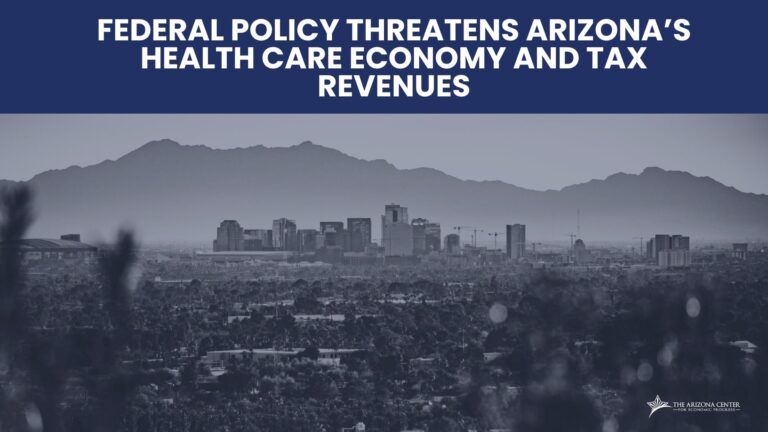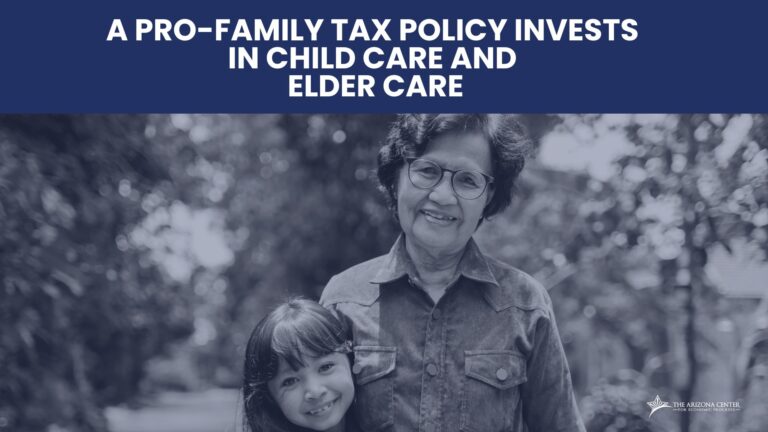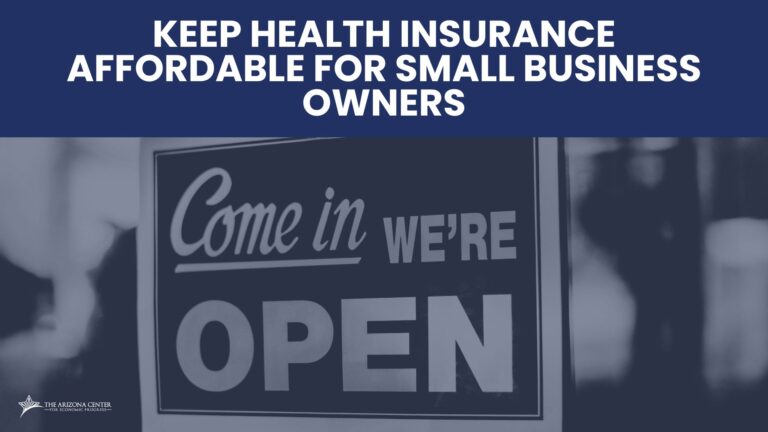
Congress should make the wealthy and corporations pay their fair share to fund our future
Congress has an opportunity to build an economy for everyone – not just those at the top
As Arizona’s economy continues to recover (while threatened by the spread of the COVID-19 Delta variant), too many families and communities continue to struggle. According to recent estimates from the U.S. Census Household Pulse Survey, 35 percent of Arizona households with children had difficulty paying for usual household expenses in the past week. For Arizonans of color, in particular, the pandemic highlighted structural inequalities, be it in health or economic well-being. Even as unemployment skyrocketed and families with lower incomes struggled, the wealthiest households saw their share of wealth and power grow thanks to a booming stock market and soaring values for financial assets and real estate.
While recovery is still underway, in this moment Congress has a historic opportunity to build a stronger, more equitable economy where all Arizonans share in prosperity—not just those at the top. Several rounds of legislation during the pandemic showed how robust and timely policy action can make a real difference in the lives of Arizonans. Elected representatives can create a brighter future for everyone by continuing to remove barriers to health and prosperity for people who have been held back from or locked out of opportunities. Through stronger investments in things like housing, child care, paid leave, nutrition, and measures to reduce poverty, Congress has a chance to reshape the economy for the better.
Policy decisions have left us more unequal
To fund these investments for Arizona’s future, the wealthiest households and corporations must pay their fair share of federal taxes. The tax code’s unfair advantages for the wealthiest are the result of a series of federal policy choices – some recent, and some long-standing.
For decades, when incomes for the wealthiest were rising rapidly—policymakers reduced the average federal taxes paid by the top 0.01 percent of households by almost one-fifth. Wealthy people have also enjoyed massive gains in the value of their assets (like stocks and property), effectively living off those assets, borrowing against them, and passing them to others without anyone ever paying taxes on that increasing wealth. Meanwhile, funding for the Internal Revenue Service (IRS) has lagged, leaving the agency ill-equipped to enforce the tax code. Estimates suggest that the lack of resources for IRS staffing has resulted in $1 trillion in legally owed taxes that go uncollected every year.
More recently, President Trump’s 2017 tax law made the system far more unfair, showering millionaires and billionaires with wasteful tax cuts. Policy decisions also resulted in a system with so many loopholes, that many of the wealthiest people in the world – people like Jeff Bezos, Elon Musk, and Carl Icahn often pay little or no income tax at all. And last year, more than fifty of America’s biggest corporations paid no federal income taxes.
How Congress can make sure the wealthy pay a fairer share
The right path is clear – Congress can invest in Arizona’s families and create shared prosperity by eliminating unfair tax advantages for the wealthiest and most profitable corporations.
President Biden’s tax proposals would:
-
Raise the corporate tax rate to 28 percent, which would partially repeal the Trump administration’s dramatic tax cut for corporations and eliminate incentives for companies to shift their profits and take jobs overseas.
-
End a loophole that wipes away capital gains at death, allowing wealthy people to avoid every paying income taxes on a major share of income.
-
Restoring the top income rate for high-income people to the 39.6 percent that was in place before the 2017 Trump Tax Cuts.
-
Taxing the investment income of millionaires and billionaires the same way we tax regular workers’ wages.
-
Improving tax compliance to ensure the wealthy and corporations pay the taxes that they owe through increased funding and staff at the IRS and improved financial reporting.
-
Reducing the special tax treatment for offshore profits and investments, so U.S. multinational companies pay their fair share.
Congress should also consider going farther than the President’s proposals by strengthening the taxation of multimillion-dollar estates before they are passed onto heirs, putting a surtax on the incomes of millionaires, and reforming the preferential tax treatment of corporate stock buybacks that allows shareholders to defer paying taxes.
Arizona voters agree – and elected representatives should act
Fortunately, a strong majority of Arizonans support the economic recovery legislation making its way through Congress AND support funding those investments by raising taxes on the wealthy and corporations. According to a recent poll of Arizona registered voters conducted by Hart Research & ALG Research, two-thirds of Arizona voters support President Biden’s American Families Plan, and 68% see his proposals to raise taxes on the wealthy and corporations as a strong reason to support it. In fact, “ensuring that the wealthy and corporations pay their fair share in taxes” is a top priority for Arizona voters today, even ahead of other goals like “creating jobs”, “rebuilding America’s infrastructure”, and “reducing the national debt”. Arizona voters would even go further than the President’s plan, with strong majority support for taxing wealth, expanding the estate tax, and eliminating “dynasty trusts”.
Arizona’s congressional delegation has a choice: they can continue the tax cuts that benefit the wealthy, or they can act in this moment to channel the will of Arizonans to clean up the tax code to build an economy that works for everyone.



